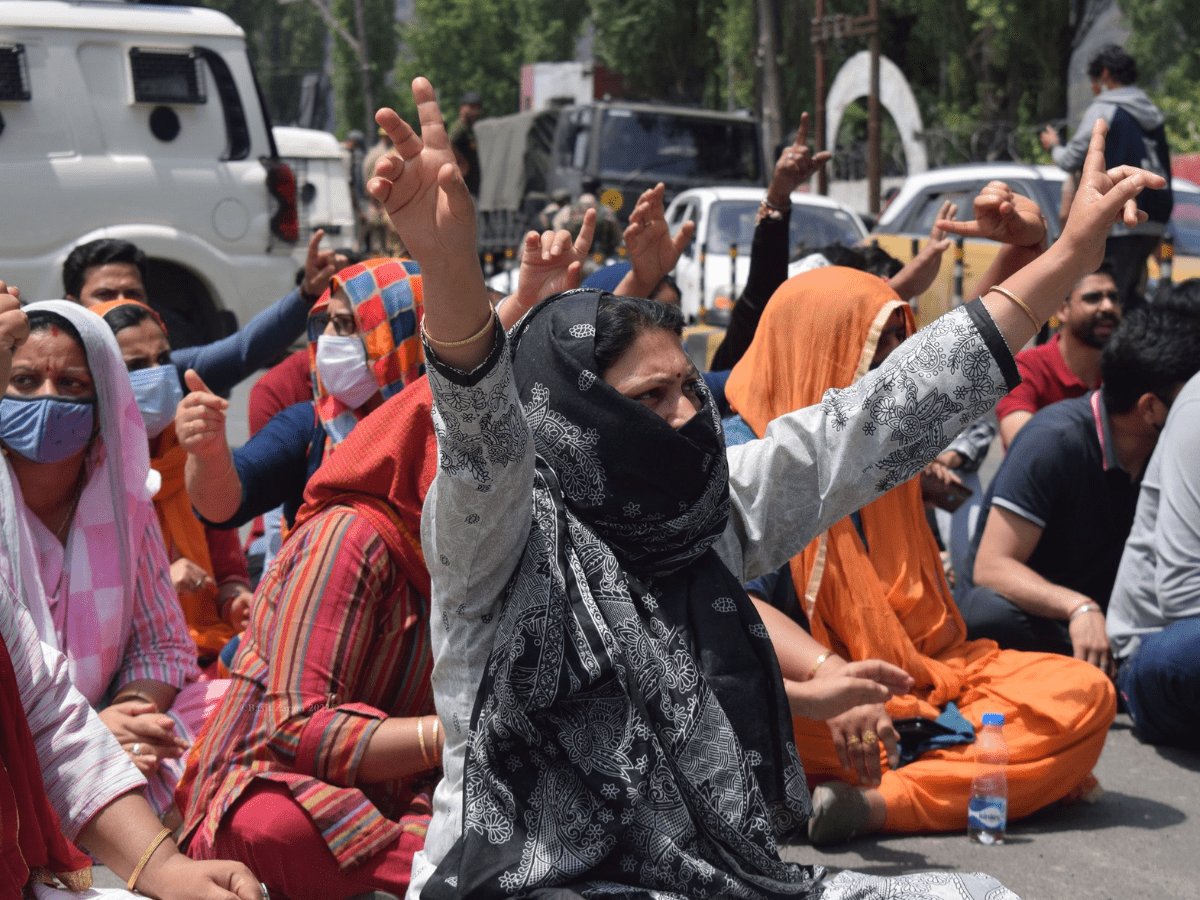
Yet another complex striation has arisen in Jammu and Kashmir after the Union territory administration warned the striking Kashmiri Pandit employees that they would not get salaries for sitting at home. This has put them in a dilemma, either to serve in the Valley, where militants targeted the community members, or to forego their salaries, and eventually may lose their jobs.
Lieutenant Governor Manoj Sinha who is facing persistent criticism over the issue of the protesting Kashmiri Pandit employees who came down to Jammu after the killing of their colleagues in Kashmir to escape terror threat, made a categorical statement on Wednesday that the employees will have to go back to their workplaces or forego their salaries. The administration is clear, it cannot give salaries to the employees who have abandoned their duties.
The administration has its own constraints and obligations. The absence of the employees, serving in the Valley under Prime Minister’s Relief and Rehabilitation Package, is sending a message that it is being soft on the minority community employees. The local Kashmiri Muslim employees are performing their duties as per the service rules. Though they are not saying it openly, the fact remains that a sort of sense of being poor cousins to the migrant employees is developing. This, at some point in time, may be exploited by the political class, which may demand that the posts on which the migrant employees refuse to work, because of their security concerns, be filled by the local youth seeking employment.
There also is a catch. It may serve the purpose of the elements who want Kashmir to be the exclusive domain of the majority community. At times, they also sympathize with the striking Kashmiri Pandit employees, citing their fears and the threat that they perceive in the Valley. This helps them pin down the government on the security issue. The government has been claiming that terrorism has been almost wiped out of the Valley. LG Sinha used a typical Hindi proverb,” Unki Kamar Tod dee gayi Hai”- their back has been broken. But with the Kashmiri Pandit employees insisting that their lives are unsafe and they cannot serve in the Valley negates Government’s claims. These are particularly hurting for the government as it has been championing the cause of Kashmiri Pandits, terming them as the first victims of Pakistan-sponsored terrorism. Their migration from the Valley in the 1990s has been chosen as a defining moment in the history of Kashmir, to pin down Pakistan for its proxy war in Kashmir which is now continuing for the past over three decades. All the statistics and claims that terrorism has ended, have not induced confidence among the Kashmiri Pandit employee to rejoin their duties in the Valley.
Who are these PM package employees?
In April 2008, then Prime Minister Manmohan Singh announced this package to ensure the return of the migrants to the land of their forefathers. He had announced that 6,000 posts will be reserved for migrants. This scheme came into effect in 2012, when the government recruited 3,000 of migrant youth for jobs in the valley. There was a rider that such selected youth had to sign a bond, committing themselves to serve in their place of work in the valley, meaning thereby that they could not demand transfer out of the Valley. things went on smoothly, more Kashmiri Pandits were recruited in the subsequent years. But on May 12, 2022, when militants shot dead Rahul Bhat, an employee of the revenue department in his office in Budgam district in Central Kashmir, it triggered fear among the employees. They started moving out of the Valley. The killing of Rajni Bhalla in her school premises in south Kashmir’s Kulgam district on May 31 amplified their fears, and the demand for the transfer out of the Valley gained momentum. Several sections of these employees started a sit-in in Jammu demanding that they be transferred to Jammu, the place which they felt gave them a sense of security. Jammu had hosted Kashmiri Pandits from number one to the last of them who fled the Valley. Till date, 49,000 families have been registered with the government, and a majority of them are living in Jammu.
It will be seen how the government balances the whole thing where the security needs of the migrant employees are met. It all depends on how the migrant employees take this order from the government.



